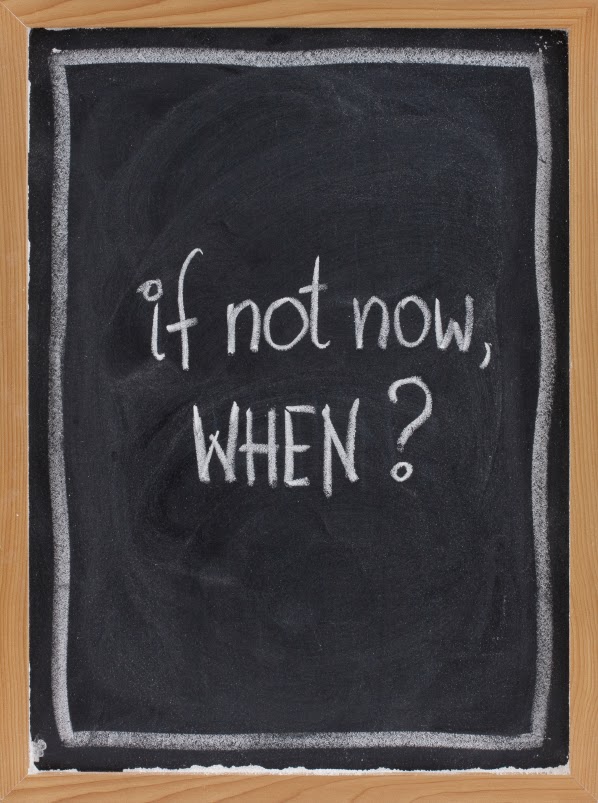Post #3: Watch what you do
Watch What You do
Your actions play a vital role in others' lives
We often hear of celebrities and athletes being referred to as role models, and how their negative actions have a lasting effect on the young people who look up to them. But, of course, being a role model is bigger than what you see on the television screen. Parents, teachers and complete strangers can be role models, and are usually the greatest examples of such. But what about being a role model to an adult? We don't really hear about it in that terminology, but at the end of the day, we all need them: someone to look up to or seek guidance from. You may refer to such role models as mentors, advisors, counselors, pastors... or dare I say friends and co-workers?
We all show each other what we want to be shown about our lives, and rarely does that view involve negativity or pain. But no one is perfect. We all have struggles we are trying to overcome. People struggling with illnesses, self-hate, drama at home, financial turmoil, etc... are all going about their lives as though they couldn't have a care in the world. But such an outer appearance is fragile, and can break at the mere words, attitudes, or ill-will actions/feelings bestowed upon them by others. It's simple: You just never know what someone is going through (or what's going on in their household).
It's the little things
Everyone is not always going to get along, but I firmly believe you can be cordial with a majority of the general population. A simple 'Hi' or 'How are you doing?' could help someone deep in depression. A call asking 'How are you doing" could cheer someone up who was having a rough day. A compliment could encourage someone's self-esteem. A small financial donation to a charity could change someone's life. It's like we all forget these simple notions, and assume that every single person, including ourselves, are Goliaths in this game of life that can't be touched by anyone in any way. Yet, if you're familiar with the story of David and Goliath, you know that despite Goliath's strength and stature, he too, fell. Each and every one of us could have our lives change drastically in an instance-- be it good or bad. It could be the death of a loved one, the loss of a job, a marriage, the welcoming of a new child, and any other life-changing event that can affect us in new, challenging ways. So given that we know this about life, why don't we put this into account when dealing with one another (with our co-workers, our managers/employees, our friends, our relatives or complete strangers).
I believe that you can 'point your heart' at someone. It's a way of just being kind and joyful about life that encourages others to want to have that same experience. I believe you can find a silver lining in everything. Consider that, for some, laughter can improve your health.
Whenever someone does you wrong, it is easy to point at them and blame them for their transgressions, but I challenge you to:
Whenever someone does you wrong, it is easy to point at them and blame them for their transgressions, but I challenge you to:
- 1) step outside of yourself and see if your actions/tone may have triggered the interaction, and
- 2) consider that that mistreatment from the other person may have absolutely nothing to do with you. They could be struggling with something so deep that any word, glance or interaction could have triggered them so deeply.
Why do parents want their children to behave in a respectable manner in public? It's because they don't want the children's behavior to be a negative reflection of them. Children, often, are a reflection of their parents and surroundings. So what does your current reflection say about yourself? Before you answer that, read the following definition from Merriam-Webster Dictionary:
re·flec·tion
noun \ri-ˈflek-shən\
: an image that is seen in a mirror or on a shiny surface
: something that shows the effect, existence, or character of something else
: something that causes people to disapprove of a person or thing
If everyone around you was surveyed about your 'reflection,' what would the conclusion be? Are you humble, generous and loving, or negative, bitter and quick to judge?
Could it be that the reflection you exude to others could dictate how people treat you, respond to you, and act around you? I think it could. I'd go further and say it could determine the type of people who are attracted to you.
Look at small examples with strangers, such as 'paying it forward': You place an order at a drive-thru window, you pull up to pay, and the worker tells you your meal was already paid for by the complete stranger who was in front of you in the line. That driver has already left, so there's no way to at least say 'thanks.' So what do you do? Spread the quick excitement to the driver behind you. Easy, but could affect others in ways you could not imagine.
It's easier to be a kind and helpful, than angry and hurtful... especially when you consider there's always someone watching who could subconsciously be hindered or encouraged by your mere existence. Think about it.
Quotes:
"So I had to be careful. I recognized the responsibility that, whether I liked it or not, I had to accept whatever the obligation was. That was to behave in a manner, to carry myself in such a professional way, as if there ever is a reflection, it's a positive one."
Sidney Poitier
"I'm a reflection of the community."
Tupac Shakur




Comments
Post a Comment